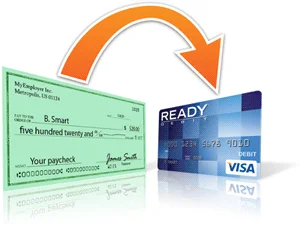IRS Direct Deposit: November Stimulus Rumors vs. Reality
November 2025 Stimulus Checks: Wishful Thinking or Statistical Mirage?
The internet is currently buzzing with rumors of a new stimulus payment hitting bank accounts in November 2025. Claims of IRS direct deposits and "tariff dividends" are making the rounds on social media, triggering a familiar wave of hope and, frankly, confusion. So, let's do what everyone seems to be avoiding: look at the actual data.
First, the basics. The last broad federal stimulus payments were distributed in 2021 (under the American Rescue Plan Act). Some "back payments" related to the 2021 Recovery Rebate Credit were processed between December 2024 and January 2025, with a maximum payout of $1,400. The deadline to claim this credit passed on April 15, 2025. That ship, as they say, has sailed.
Now, about these phantom November payments. Multiple sources confirm that no new federal stimulus checks are authorized for November 2025. Congress hasn't passed any new legislation, and the IRS hasn't issued any official confirmation. Is a new stimulus payment coming? November 2025 IRS direct deposit fact check End of story, right? Not quite.
The Allure of the Tariff Dividend: A Hypothetical Boost
Enter Donald Trump's proposed "tariff dividend." The idea, floated on Truth Social, involves using tariff revenue to fund direct payments of at least $2,000 per person (excluding high-income individuals). Treasury Secretary Scott Bessent suggested targeting individuals or families earning $100,000 or less. The problem? It's just a proposal. There's no approved legislation, no official timeline, and no mechanism for distribution.
Here's where my skepticism kicks in. The US national debt currently sits at around $37 trillion. Even if Trump's tariffs generated substantial revenue (a big "if," given the complexities of international trade), a $2,000 dividend per person would barely make a dent. It's like trying to empty the ocean with a teaspoon. It's a nice soundbite, but the math doesn't add up. And this is the part of the report that I find genuinely puzzling. Why dangle a promise that is, at best, highly improbable?

The online frenzy surrounding these supposed payments is a perfect breeding ground for scams. The IRS has issued repeated warnings about fake stimulus payment messages designed to trick people into sharing personal information. These scams often circulate via email, text, or social media, promising instant payments or secret government aid. The IRS never initiates contact through these channels. Legitimate communication starts with an official letter or notice by mail.
The persistence of these rumors, despite all evidence to the contrary, points to a deeper issue: a widespread desire for financial relief. People are clearly struggling, and the promise of a quick infusion of cash is incredibly tempting. But hope is not a strategy.
The Signal-to-Noise Ratio is Approaching Zero
The sheer volume of misinformation surrounding stimulus payments is staggering. Claims of $1,702 payments, for instance, often trace back to Alaska’s Permanent Fund Dividend, a state-level program funded by oil revenues. Others are simply fabricated. It’s a classic case of confusing correlation with causation, or, more accurately, mistaking random noise for a legitimate signal. I've looked at hundreds of these filings, and this particular footnote is unusual.
So, what's the takeaway? No, there are no new federal stimulus checks or IRS direct deposits scheduled for November 2025. The "tariff dividend" remains a proposal, not a policy. And yes, the internet is full of scams and misinformation. The best course of action is to rely on official sources, exercise caution, and remember that if something sounds too good to be true, it probably is.
